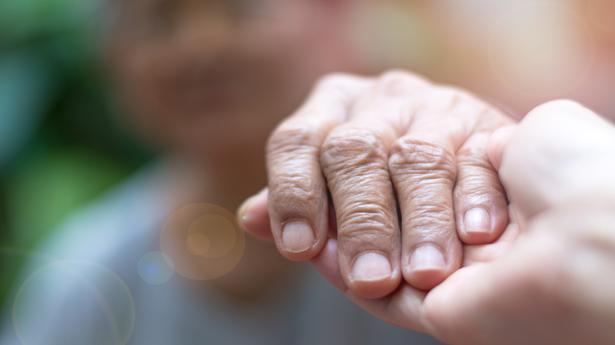
Getting serious about supporting the care economy
The Hindu
Care work is vital for economies in general and India needs to have a strategy and action plan for improved policies
Greater investment in care services can create an additional 300 million jobs globally, many of which will be for women. In turn this will help increase female labour force participation and advance Sustainable Development Goal (SDG) 8 (which is to ‘promote sustained, inclusive and sustainable economic growth, full and productive employment and decent work for all’).
Every year, March 8 is celebrated as International Women’s Day. The immense contribution of women to all spheres of life is often overlooked, unfairly valued, and hardly rewarded. This is ‘particularly evident in care work — both paid and unpaid, which is crucial to the future of decent work. Care work encompasses direct activities such as feeding a baby or nursing an ill partner, and indirect care activities such as cooking and cleaning’. Whether paid or unpaid, direct or indirect, care work is vital for human well-being and economies. Unpaid care work is linked to labour market inequalities, yet it has yet to receive adequate attention in policy formulation. Paid care workers, such as domestic workers and anganwadis in India, also struggle to access rights and entitlements as workers.
The importance of care work is now widely acknowledged and covered in various international commitments such as the SDGs and the International Labour Organization (ILO)’s Centenary Declaration. Since March 2020, the demand for care services has skyrocketed. However, the investment in the care economy has not matched the pace. This year, to commemorate International Women’s Day, the ILO brought out its new report titled, ‘Care at work: Investing in care leave and services for a more gender-equal world of work’. The ILO is the only tripartite UN agency, which brings together governments, employers, and workers of 187 member States, to set labour standards, develop policies and devise programmes promoting decent work for all women and men.
The report highlights the importance of maternity, paternity, and special care leave, which help balance women’s and men’s work and family responsibilities throughout their lives. Furthermore, it demonstrates that workplaces that provide time, income security and space for undertaking care services such as breastfeeding, enable positive nutrition and health outcomes.
Bridging the gaps in current policies and service provisions to nurture childcare and elderly care services will deliver the benefits of child development, aging in dignity and independent living as the population grows older and also generate more and better employment opportunities, especially for women.
Maternity leave is a universal human and labour right. Yet, it remains unfulfilled across countries, leaving millions of workers with family responsibilities without adequate protection and support. India fares better than its peers in offering 26 weeks of maternity leave, against the ILO’s standard mandate of 14 weeks that exists in 120 countries. However, this coverage extends to only a tiny proportion of women workers in formal employment in India, where 89% of employed women are in informal employment (as given by ILOSTAT, or the ILO’s central portal to labour statistics). While paternity leave is recognised as an enabler for both mothers and fathers to better balance work and family responsibilities, it is not provided in many countries, including India. Globally, the average paternity leave is nine days, which further exacerbates inequity.
Access to quality and affordable care services such as childcare, elderly care and care for people with disabilities is a challenge workers with family responsibilities face globally. While India has a long history of mandating the provision of crèches in factories and establishments, there is limited information on its actual implementation. There is scope for improvement in availability, accessibility, affordability and quality. Working conditions of care workers are another critical gap to address. Though childcare and anganwadi workers undertake important work, and childcare is recognised as professional work in advanced countries, they lack recognition as workers and do not have requisite access to workers’ rights and entitlements in India.

Can RBI’s proposal to waive foreclosure charges help micro and small industries? | Explained Premium
RBI proposes to waive foreclosure charges and prepayment penalties on loans for MSEs, aiming for easy financing.












